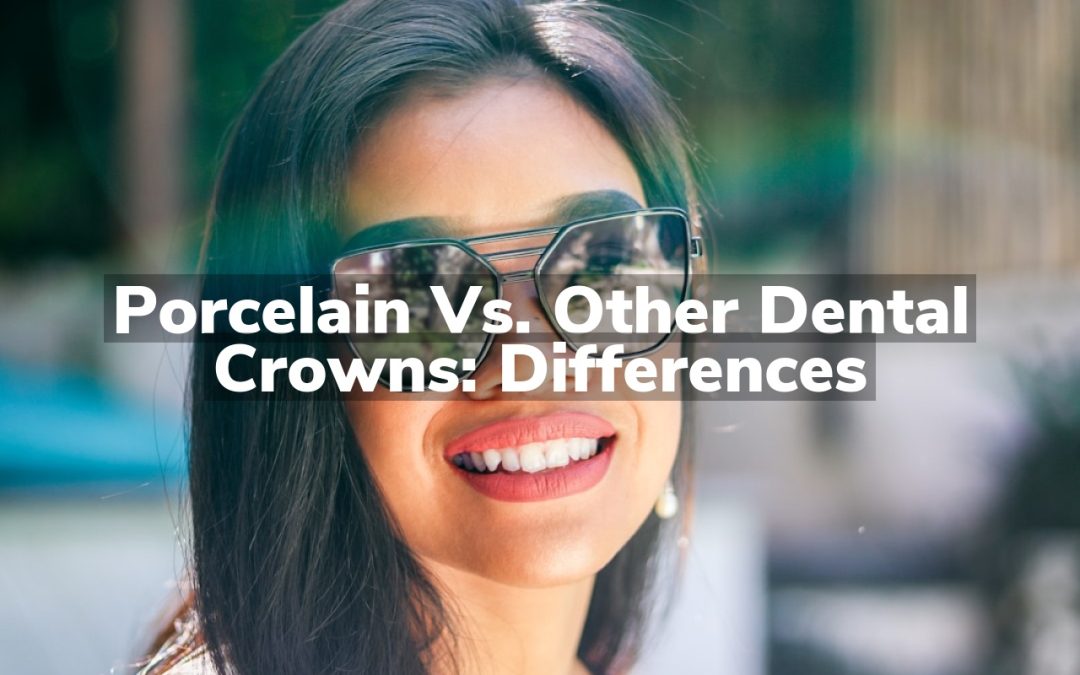Are you considering getting a dental crown but unsure about the different options available? In this post, we will explore the differences between porcelain crowns and other types of dental crowns, helping you make an informed decision about which option is best for you.
Material composition and durability comparison
When it comes to dental crowns, the material composition plays a significant role in determining their durability and longevity. Porcelain crowns are known for their natural appearance and biocompatibility, making them a popular choice for many patients. They are also highly resistant to staining and offer a strong, durable option for restoring damaged or decayed teeth. On the other hand, other dental crown materials such as metal or ceramic may offer different levels of durability and aesthetic appeal, depending on the specific needs of the patient.
In a comparison of material composition and durability, it’s important to consider the pros and cons of each type of dental crown. Factors such as the location of the tooth, the patient’s oral hygiene habits, and their budget can all play a role in determining the best option. For a more in-depth look at the pros and cons of different dental crown materials, check out our article on Pros & Cons of Dental Crowns: A Brief Insight. This can provide valuable insight into the various options available and help patients make an informed decision about their dental treatment.
Aesthetics and Natural Tooth Appearance
When it comes to dental crowns, one of the key factors that patients consider is the aesthetics and natural appearance of the restoration. Porcelain crowns are highly regarded for their ability to closely mimic the color, translucency, and texture of natural teeth. The porcelain material used in these crowns can be customized to match the shade of the surrounding teeth, resulting in a seamless and natural-looking smile. This makes porcelain crowns an excellent choice for individuals who prioritize aesthetics and want their dental restorations to blend in seamlessly with their natural teeth.
In addition to their ability to match the natural tooth color, porcelain crowns also possess a lifelike translucency that allows light to pass through them, just like natural teeth. This characteristic ensures that the crown reflects light in a similar manner to the surrounding teeth, creating a harmonious and natural appearance. Furthermore, porcelain crowns can be shaped and contoured to match the size and shape of the adjacent teeth, enhancing the overall aesthetics of the smile. With their ability to provide a natural tooth appearance, porcelain crowns are an ideal choice for individuals seeking a restoration that not only restores functionality but also enhances the beauty of their smile. Enhance your teeth with Conyers Dentist’s dental crowns.
Cost and affordability considerations
When comparing porcelain dental crowns to other options, cost is an important factor to consider. Porcelain crowns are typically more expensive than metal or resin crowns, but they also offer a more natural appearance and can be a more durable option in the long run. It’s important to weigh the upfront cost of porcelain crowns against their longevity and aesthetic benefits to determine the most cost-effective option for your dental needs. Additionally, it’s worth exploring insurance coverage and financing options to make porcelain crowns more affordable.
Longevity and Lifespan of Crowns
When considering dental crowns, one important factor to consider is their longevity and lifespan. Porcelain crowns, known for their durability and strength, have a remarkable lifespan compared to other types of dental crowns. With proper care and maintenance, porcelain crowns can last for up to 15 years or even longer. This is due to their resistance to wear and tear, as well as their ability to withstand daily biting and chewing forces. Other types of crowns, such as metal or composite crowns, may not offer the same level of longevity. It is crucial to consult with a trusted dental professional, like Conyers Dental Associates, to determine the best crown option for your specific needs and ensure a long-lasting solution for your dental health.
Potential Risks and Drawbacks Involved
While porcelain dental crowns are a popular choice for their natural appearance and durability, there are some potential risks and drawbacks to consider. One of the main concerns is that porcelain crowns can be more brittle than other materials, which can lead to cracking or chipping over time. Additionally, porcelain crowns may require more tooth preparation than other types of crowns, which can increase the risk of nerve damage or sensitivity. It’s important to discuss these potential risks with your dentist and weigh them against the benefits before deciding on a dental crown material.
Conclusion
In summary, understanding the differences between porcelain and other dental crowns is crucial for making informed decisions about your oral health—contact Conyers Dental Associates at 770-483-6655 to schedule a consultation and learn more about the best option for you. Read reviews on Google Maps.

